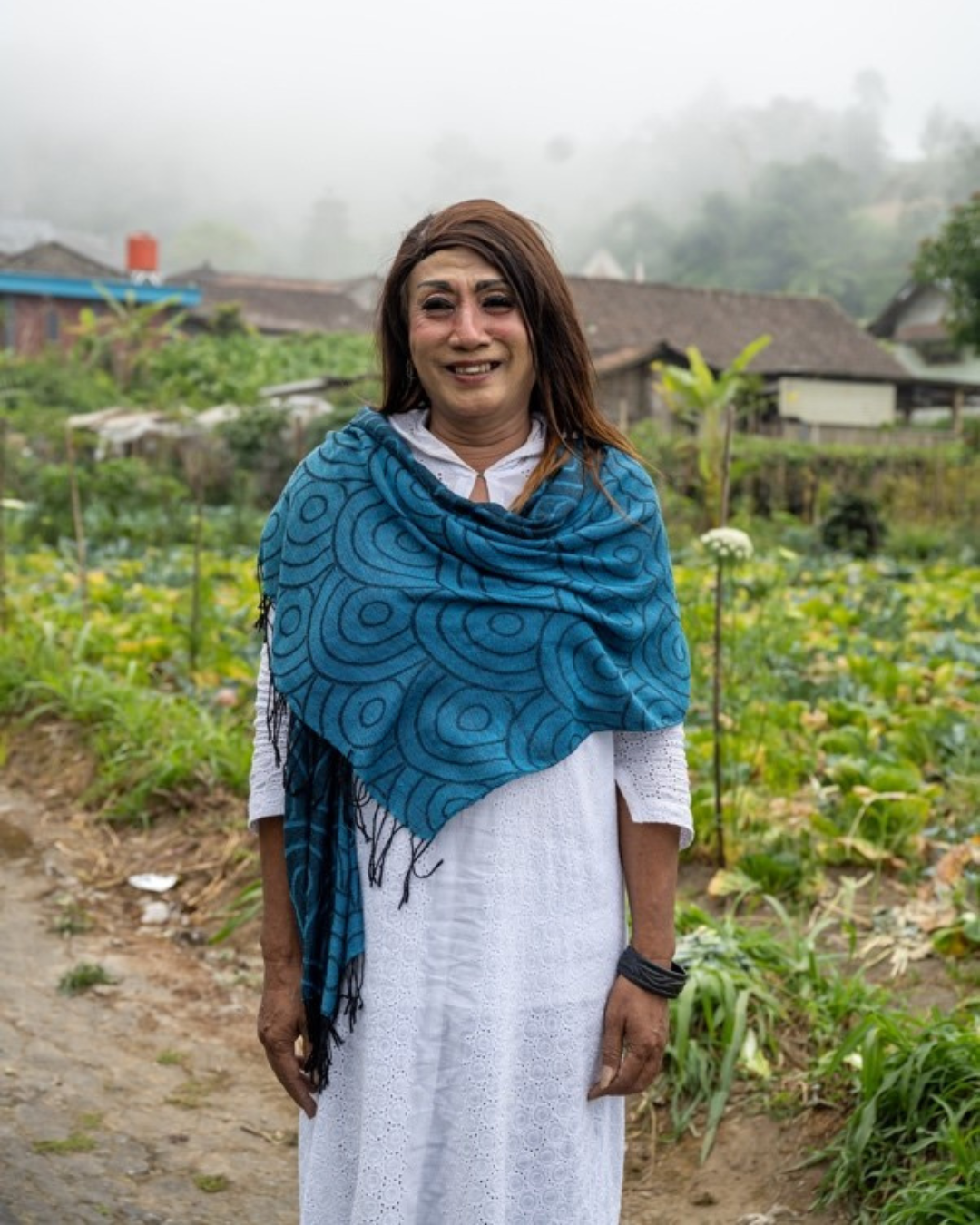In the highlands of the island of Java, far from the noise of Indonesia’s major cities, a quiet revolution is unfolding. At the heart of it is the Al Fatah Ponpes Religious School, the world’s only Islamic school for transgender people.
Al-Fatah is a unique Islamic school, or ‘pondok pesantren’ in Bahasa Indonesian, for transgender people in Yogyakarta, Indonesia. Founded by Shinta Ratri, a transgender activist, it provides a safe and supportive community for transgender Muslims who may face discrimination at home. The school offers a place to pray together, a comfortable environment, and a safe atmosphere for transgender people to live freely, while also encouraging students to rediscover their faith and read the Quran.
For Mami Tata and Yuni, two proud transgender women, Al-Fatah is a place of worship, and a home to lead their tight-knit community.
I met them in the village of Samiran, Boyolali Regency, during World Humanitarian Day celebrations collaboratively run by IPPF’s Indonesian Member Association, PKBI. What I witnessed there was leadership, joy, pride, and defiant self-expression in the face of a society that too often refuses to see them.
when
country
Indonesia
region
East and South East Asia and Oceania
Related Member Association
Indonesian Planned Parenthood Association

At 60 years old, Mami Tata is the kind of woman who doesn’t wait for permission to make change.
“I always felt, since I was in elementary school, that I was transgender,” she told me. “At first, I was scared to tell people... A lot of people felt like they had to hide their identity at that time.”
Thanks in part to years of support and capacity-building by PKBI, Mami Tata has emerged as a grassroots leader. She credits the organisation for giving her the tools and the confidence to not only care for others, but to organise, advocate, and mentor.
“Before, I didn’t really know how to take care of my sick friends, how to express myself,” she said. “But because of the seniors at PKBI, they really helped boost my confidence.”
Mami Tata has founded two organisations that support marginalised people, including children living on the streets and victims of domestic violence. She also advocates for trans people to gain access to health insurance, ID cards, and education.
“Society wants to know what contribution the transgender community can give them, before they accept them willingly... I want all transgender people in Indonesia to have a stage.”
Mami Tata has also cultivated these values in her own home, adopting and raising five sons, all cisgender men, many of whom face their own health and social challenges. She’s helped them grow up and thrive regardless of the obstacles they’ve faced, and three of them have now made it through college with her help.

Mami’s friend, ally, and sister, Yuni, 45, also speaks about her journey as a trans woman.
“Since I was three years old, I started to wear a dress... I went through a denial stage of these feelings for six years,” she said. “In 1994, when I fully accepted myself as transgender, it became more comfortable for me to accept my identity than to deny it.”
But acceptance didn’t come easily from those around her. She had to build relationships strategically, especially with neighbours.
“I needed a strategy... to behave and socialise very well with my neighbours... I believe that as a transgender woman, I am also a social being. So, I don’t have to contribute great things but just have good behaviour and be social.”
Yuni’s leadership, too, has taken formal shape. In May 2023, she was named the leader of Jogjakarta’s transgender community during a local gathering, a role that led to stronger ties with Al Fatah.
The school offers not just Islamic education but a rare sense of belonging, even if it remains controversial. “It’s not really accepted by the wider Islamic community,” Yuni explained. “Here in Indonesia, they only have a binary view of gender: men and women... But it differs with progressive and modern Islam.”
PKBI has been a crucial link in empowering these communities. “PKBI has a very big impact, they organised us to become small communities to empower ourselves,” Yuni said.
Al Fatah Ponpes is an example for what inclusivity can look like, even in spaces where you might least expect it. It serves trans women, trans men, gay men, lesbian women, anyone who’s been left out of traditional faith structures and denied a space to learn and grow.
Both Mami Tata and Yuni make clear that visibility without opportunity is not enough. Their stories are about agency, organising, and creating the kind of community that doesn’t just ask to belong.
In a world where transgender rights are constantly under attack, communities like these are more important than ever. Trans people face threats to their lives, rights, and self-determination. Mami Tata and Yumi show us that change is possible when it comes from grassroots organizing, powered by authenticity and love. That queer community changes lives, and that acceptance and empowerment can come from places we do not expect. And that we cannot wait to ask permission to create the world we want.
As pride month comes to an end, we must keep up the fight to protect our communities, supporting each other and organizing with love, care, and determination to create the world we want to live in.










